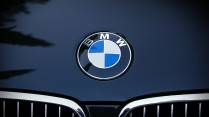Audi Sets Sights on 2026 for Last Gas-Powered Car Release
By Dabbie Davis
Mar 20, 2024 11:17 PM EDT

In 2021, Audi made a significant announcement. It declared that it would no longer be selling ICE models beyond 2033. In the 2023 financial results presentation, Audi CEO Gernot Döllner formally confirmed that the business will be producing its last gas-powered vehicle in 2026, reinforcing this critical strategic plan.
Audi is unwavering in its resolve to release this last model with an internal combustion engine, even in the face of industry-wide obstacles like a halt in the growth of electric vehicle sales. Notably, Döllner stressed the company's adaptability to possible changes in the market while staying committed to the overall objective of embracing electric transportation.
Automotive News and Motor Authority both covered these plans, highlighting Audi's forward-thinking attitude to environmentally friendly innovation in the automotive industry.
No More Gas-Powered Cars for Audi
The initial roadmap, unveiled by former CEO Markus Duesmann in 2021, laid the groundwork for Audi's transformative journey, culminating in Döllner assuming leadership in the subsequent year. This was in contrast to other automakers' changing approaches; Mercedes-Benz, for example, had first declared similar intentions but now wants to keep producing cars with internal combustion engines long into the next decade.
This comparison demonstrates Audi's steadfast dedication to leading green mobility programs and promoting progressive change in the sector.
Furthermore, amid a discernible slowdown in the demand for electric vehicles in specific global markets, Audi has decisively reaffirmed its unwavering commitment to the strategic plan initially unveiled by former CEO Markus Duesmann in 2021.
READ MORE: Honda Develops Next-Generation Active Rear Diffuser for Enhanced Performance
This resolute position was underscored by Gernot Döllner in a recent announcement, where he confirmed the company's dedication to maintaining the production of their final gas-powered car until 2033, signifying a significant shift towards establishing Audi as an all-electric brand thereafter.
Additionally, as auto123 reported, Döllner highlighted Audi's proactive strategy of launching over 20 completely new or revised models by the end of 2025. This includes the release of the Q6 e-tron in 2025. These changes demonstrate Audi's proactive efforts to expand its line of electric vehicles in accordance with its long-term goals.
Latest Model Lineup
The market can expect updated versions of the A5 and Q5, as well as a new A3 and A6 e-tron, in 2025. The latter two are expected to be constructed on the Premium Platform Combustion. It is a new platform created for cars with internal combustion engines. This is opposed to the Premium Platform Electric framework used for cars with batteries, such as the Q6 e-tron and the electric Porsche Macan.
Döllner also revealed that the A5 and Q5 will undergo enhancements with a new electric/electronic architecture. Furthermore, the Q6 E-tron, operating on the Porsche/Audi Premium Platform Electric (PPE) architecture, is set to debut in the latter half of the year, following a delay of more than two years, attributed in part to software-related challenges.
As reported by Automotive News, Audi aims to achieve equivalent revenue from electric vehicles and combustion engines by the conclusion of this decade. Presently, electric vehicles contribute approximately 28 percent of the revenue, while ICE models account for the remaining 72 percent, as disclosed by Audi on Tuesday.
RELATED ARTICLE: Audi Streamlines, Bids Goodbye to Confusing Name Scheme
Copyright @ MOTORTIMES, All rights reserved. Do not reproduce without permission.








